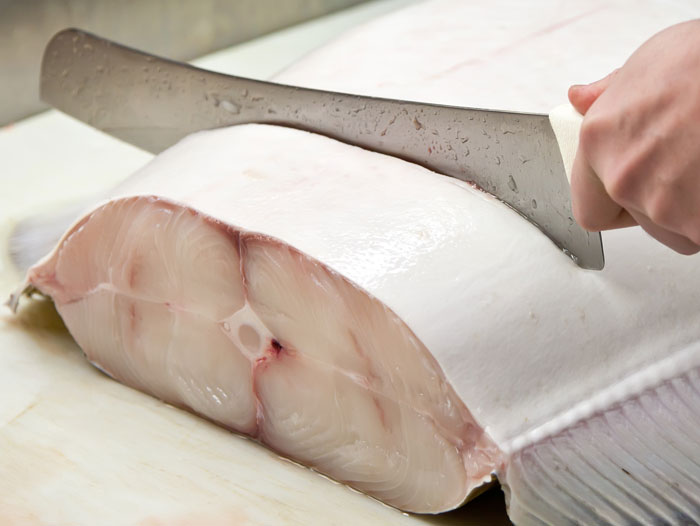100% of Greenland Halibut Caught in the EU Now MSC Certified
June 26, 2019 | 2 min to read

Following a 13-month assessment, Doggerbank Seefischerei GmbH halibut fishery, off the west coast of Greenland has been certified to Marine Stewardship Council’s (MSC) sustainable fishing standards. The assessment was carried out by a four-member evaluation team headed by Control Union Pesca Ltd. All the fisheries catching Greenland halibut in the EU are now MSC-certified and are fishing sustainably.
The Doggerbank fishery’s two deep-sea trawlers “Mark” and “Gerda Maria” catch Greenland halibut in fishing trips lasting several weeks between June and December in the coastal waters of Western Greenland. The innovative bottom trawls use special rollers on the bottom ropes which reduce contact with the seabed and the nets are designed to reduce bycatch.
Dr. Uwe Richter, Managing Director of Doggerbank Seefischerei GmbH: “We are delighted our Greenland halibut fishery has been awarded an MSC certificate. This is recognition for our captains’ and crews’ fishing practices in Greenlandic waters, which have been practiced for years and which are environmentally friendly and gentle on stocks. The use of special fishing techniques to reduce bycatch and minimise the environmental impact as well as a responsible management system.”
The Greenland halibut
Greenland halibut, a flatfish mainly found in the North Atlantic, is one of the most valuable fish in German deep-sea fishing. The heads and tails are frozen separately on board as there is a demand for them in Asian markets. The tender white meat is very fatty and is sold smoked in Germany.
“The certification of our Greenland halibut fishery is an important contribution to the provision of sustainably caught fish for the processing industry and retailers, especially for the fish manufacturer Deutsche See in Bremerhaven. It works as an incentive for us to continue to work towards certifying our other fisheries in the future. In the meantime, 85 percent of our total catch already carries the MSC label,” says Dr. Uwe Richter.
Further improvements
As part of the certification process, the fishery will develop a strategy to better study, observe and protect the marine ecosystem in the fishing area. Within three years, a system will be put in place to prevent fishing in sensitive habitats.
“Doggerbank Seefischerei already received the MSC certificate for sustainable fishing for its North Sea herring fishery in 2006 as part of the Pelagic Freezer Association, making it the first German MSC-certified fishery,” says Karin Lüdemann, fisheries officer at the MSC in Germany. “We congratulate Doggerbank Seefischerei on its new MSC certification.”
